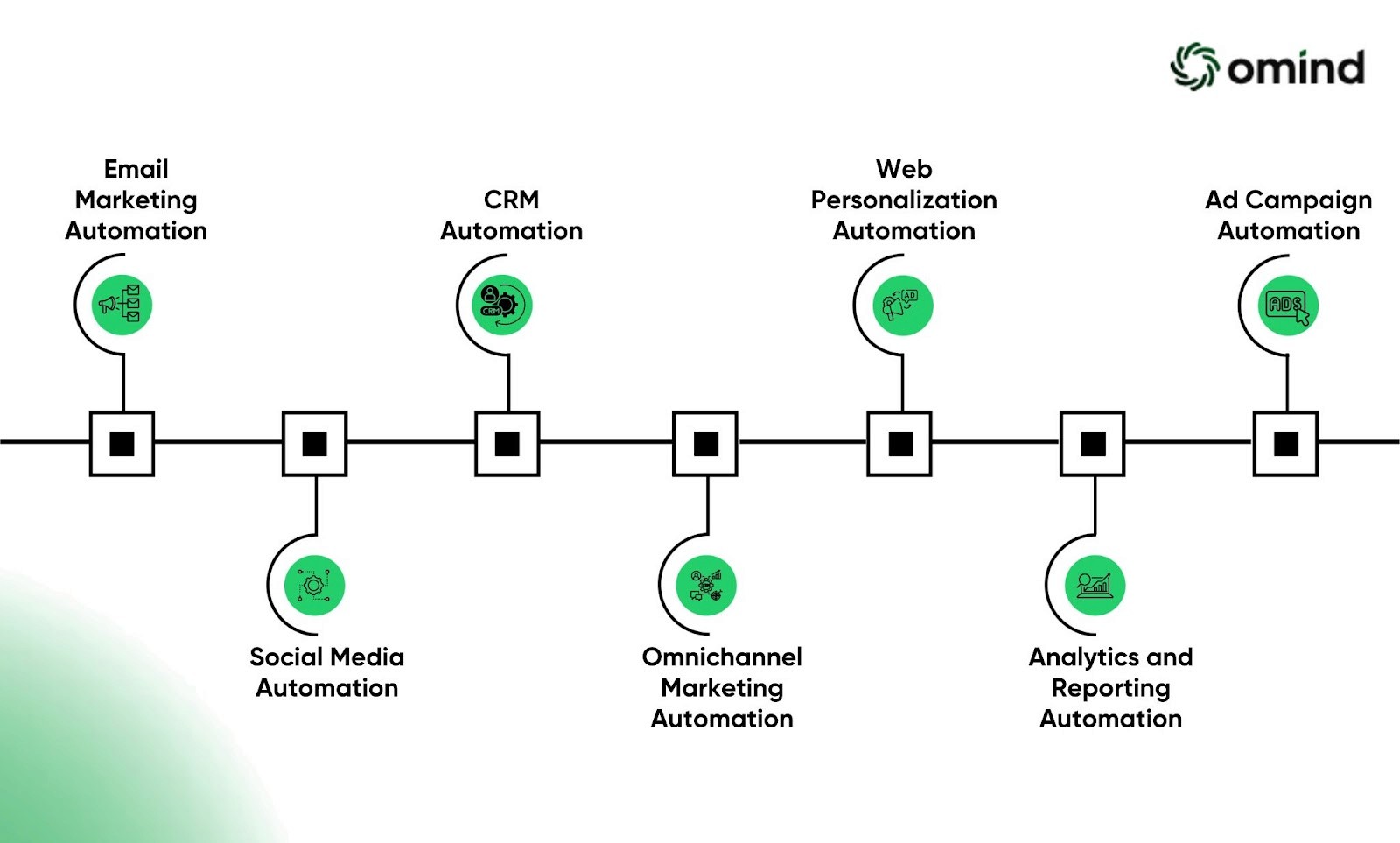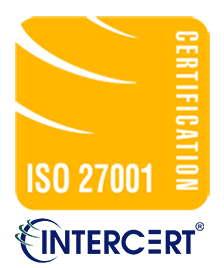Marketing automation has become an indispensable tool for businesses of all sizes. By automating repetitive tasks and personalizing communication at scale, it allows marketers to elevate their strategies and achieve significant results. This article explores the core concepts of marketing automation, and its various types, and showcases compelling examples for both B2C (Business-to-Consumer) and B2B (Business-to-Business) companies.
Power of Automation
Marketing automation uses software to streamline workflows and manage marketing campaigns, allowing marketers and the marketing teams of an organization to focus on strategic initiatives and crafting high-impact campaigns, which are then augmented with the same automation solutions. However, it's crucial to understand the distinction between B2C and B2B marketing automation. B2C strategies prioritize highly personalized messages tailored to individual customers, while B2B campaigns often cater to businesses or a broader audience with a focus on education and value creation.
A Spectrum of Automation Options

Marketing automation consists of a wide range of processes each contributing to a more efficient and effective marketing strategy. Here's a breakdown of some key types.
Email Marketing Automation: Create targeted sequences based on customer actions, like signing up for a newsletter or abandoning a cart. Welcome new subscribers with a personalized introduction, send informative content to nurture leads, or trigger promotions based on past purchases.
Social Media Automation: Staying active on social media can be time-consuming for organizations, especially keeping in mind ever-shifting trends and virality. Automation takes care of the grunt work, allowing you to schedule engaging posts in advance, and ensuring a consistent social media presence. You can also craft automated responses to frequently asked questions, and use analytics tools to track campaign performance and identify areas for improvement.
CRM Automation: CRM automation streamlines tasks within the solution that you are using, freeing up your sales team's time. Automatically score leads based on their engagement level, assign qualified leads to the appropriate sales rep, and trigger personalized follow-up messages to keep leads engaged.
Omnichannel Marketing Automation: Customers today expect a seamless experience across all channels. Omnichannel automation delivers just that. Trigger automated messages and change the direction of the customer journey based on customer interactions on any platform, be it email, social media, WhatsApp, or even SMS.
Web Personalization Automation: Personalization automation tailors the website experience based on individual visitor behavior and demographics. A good example would be a returning customer seeing product recommendations based on their past purchases. This level of personalization can significantly improve conversion rates and customer satisfaction.
Analytics and Reporting Automation: Data is the fuel for future marketing success. Automated reports provide valuable insights into campaign performance metrics like open rates, click-through rates, and conversions. This data allows you to analyze what's working and what's not, allowing you to continuously refine your marketing strategies.
Ad Campaign Automation: Managing online advertising campaigns can be complex. Ad campaign automation simplifies the process. Automate bidding strategies to optimize your ad spend and ensure your ads are displayed in the most relevant locations based on real-time performance data, ensuring you get the most bang for your buck with your online advertising efforts.
Now that we’ve taken a look at what automation can do in general, let’s go through the powers of automation for both B2C and B2B scenarios.
B2C Marketing Automation in Action

B2C companies harness marketing automation to cultivate relationships with individual customers and drive sales. Here are some examples.
Welcome Email Series: A warm welcome sets the tone for the customer relationship. Send a series of automated emails introducing your brand, showcasing popular products, and offering exclusive discounts.
VIP and Loyal Customer Rewards: Recognize and reward your most valuable customers with automated programs that offer exclusive benefits and early access to new products.
Celebratory Communications: Send automated birthday or anniversary emails with special discounts or personalized greetings to nurture customer loyalty.
Follow-up on Sales: Automate post-purchase emails requesting feedback or offering complementary products based on the initial purchase.
Reactivating Cold Customers: Re-engage inactive customers with automated email campaigns reminding them of the value your brand offers.
Ambassador Emails: Create a loyal customer base with a referral program. Use automation to send personalized emails to existing customers inviting them to refer friends and family.
Abandoned Cart Retargeting: Win back potential customers who abandon their carts. Trigger automated email or SMS reminders highlighting abandoned items and offering incentives to complete the purchase.
Stock Reminders: Keep customers informed. Automate email alerts notifying customers when out-of-stock items are back in stock.
Email Marketing Surveys: Gather valuable customer feedback. Automate short surveys within emails to understand customer preferences and improve future marketing efforts.
B2B Marketing Automation Strategies

B2B companies use automation to nurture leads, build relationships, and generate qualified sales opportunities. Here are some compelling B2B marketing automation examples.
Engagement with High-Value Webpage Visitors: Identify potential leads who visit specific product pages or pricing sections on your website. Trigger automated emails or live chat messages to provide further information or schedule demos.
Onboarding New Customers: Ensure a smooth and successful onboarding experience. Automate welcome emails, educational content delivery, and personalized training sessions for new customers.
Lead Nurturing: Convert website visitors into qualified leads through automated email sequences. Deliver educational content, industry trends, and case studies relevant to their interests.
Churn Rate Reduction: Identify at-risk customers and proactively address their concerns. Use automation to trigger win-back campaigns offering personalized solutions or loyalty programs.
Rewarding Brand Ambassadors: Incentivize customer advocacy with automated programs that recognize and reward brand ambassadors for referrals or social media mentions.
Expand Your Reach with Gated Content: Offer valuable whitepapers, ebooks, or webinars in exchange for contact information. Automate email delivery and follow-up sequences based on downloaded content.
Maximize Meeting Show Rates with Automated Reminders: Reduce no-shows for scheduled meetings or demos with automated confirmation emails and gentle reminders.
Retargeting to Turn Bounces into Customers: Website visitors who abandon contact forms can still be nurtured. Automate retargeting campaigns across social media or display advertising platforms to re-engage them.
Automated Lead Routing: Distribute leads efficiently to the right sales reps based on predefined criteria. This ensures faster response times and improves lead conversion rates.
A Tailored Approach for Every Business
The beauty of marketing automation lies in its adaptability. B2C and B2B companies can leverage these tools to achieve their unique marketing goals. The key is to tailor your automation strategy to your specific business model, target audience, and marketing objectives.
By streamlining workflows, personalizing communication, and gaining valuable customer insights, marketing automation allows businesses to build stronger relationships, drive sales, and achieve sustainable growth. As technology continues to evolve, marketing automation will undoubtedly become even more sophisticated, offering even greater opportunities for businesses to thrive.
If you’d like a helping hand when it comes to marketing, CX, and marketing automation, Omind is your answer. Omind leverages AI to bring you a conversational platform that helps visitors engage with your business and turns visitors into paying customers. To see how our platform works, schedule a demo today.
AUTHOR
Team Omind
Empowering Businesses with Unified Customer Experience Platform, Leveraging Advanced AI and Intelligent Automation
PRODUCT
Marketing AI
Share LINK
Related Blogs




